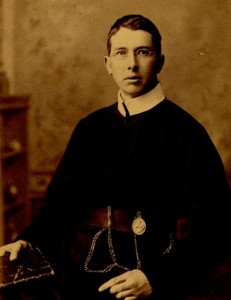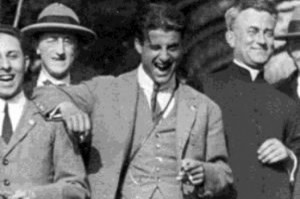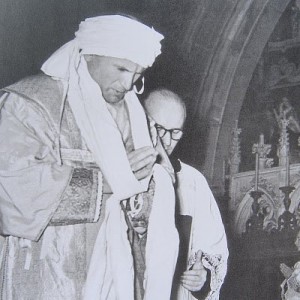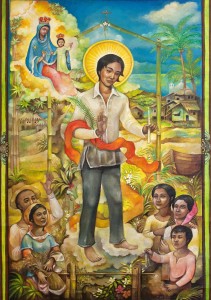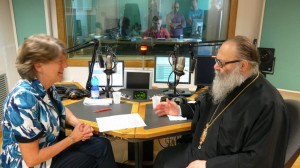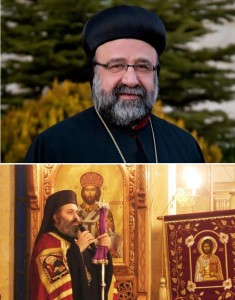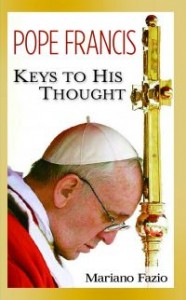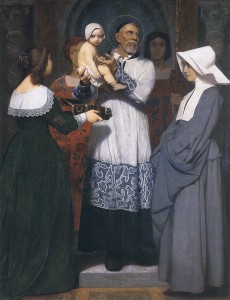Mass offered today by Pope Francis marked an International Day for Catechists organized by the Pontifical Council for the Promotion of the New Evangelization for the Year of Faith. Patriarch John X of the Syrian Greek Orthodox Church was present.
It is a day to remember what teaching the faith to others means. Indeed, we can focus on the gifts of the Catechism of the Catholic Church and Catechesis of the Good Shepherd. Key to any method of teaching is knowing what the role of the teacher has. In the Church, we say that Catechists are not the focus of our attention in passing on the Tradition of the faith, Christ the teacher is. We who teach the faith to others, especially the young, don’t replace the parents as the first teachers of the faith, nor do we, when it comes to adults, obscure the fact that each person makes the decision to freely follow Jesus doing the hard work to know what Jesus said and did.
As Pope Francis said, catechists reflect the memory of God in concrete ways; a line of thinking that Pope Benedict also taught us. Attend to what Francis says. Keeping the memory of God is an intriguing idea: the gift of being able to give clear witness to the Creator, indeed the work of the Holy Trinity. In Ignatian terms, we know God to labor for us but do we recognize this fact? This is one of the reasons we are to be familiar with narrative of divine revelation. There are many patron saints for catechists but we ought to consider important to go to are Saint Robert Bellarmine, Saint Thérèse of Lisieux, Saint John Bosco and Saint John Baptist de la Salle, among others. Go to the saints help you to remember God.
Pope Francis’ homily follows:
1. “Woe to the complacent in Zion, to those who feel secure … lying upon beds of ivory!” (Am 6:1,4). They eat, they drink, they sing, they play and they care nothing about other people’s troubles.
These are harsh words which the prophet Amos speaks, yet they warn us about a danger that all of us face. What is it that this messenger of God denounces; what does he want his contemporaries, and ourselves, to realize? The danger of complacency, comfort, worldliness in our lifestyles and in our hearts, of making our well-being the most important thing in our lives. This was the case of the rich man in the Gospel, who dressed in fine garments and daily indulged in sumptuous banquets; this was what was important for him. And the poor man at his doorstep who had nothing to relieve his hunger? That was none of his business, it didn’t concern him. Whenever material things, money, worldliness, become the centre of our lives, they take hold of us, they possess us; we lose our very identity as human beings. The rich man in the Gospel has no name, he is simply “a rich man”. Material things, his possessions, are his face; he has nothing else.
Let’s try to think: How does something like this happen? How do some people, perhaps ourselves included, end up becoming self-absorbed and finding security in material things which ultimately rob us of our face, our human face? This is what happens when we no longer remember God. If we don’t think about God, everything ends up being about “me” and my own comfort. Life, the world, other people, all of these become unreal, they no longer matter, everything boils down to one thing: having. When we no longer remember God, we too become unreal, we too become empty; like the rich man in the Gospel, we no longer have a face! Those who run after nothing become nothing – as another great prophet Jeremiah, observed (cf. Jer 2:5). We are made in God’s image and likeness, not that of material objects, not that of idols!
2. So, as I look out at you, I think: Who are catechists? They are people who keep the memory of God alive; they keep it alive in themselves and they are able to revive it in others. This is something beautiful: to remember God, like the Virgin Mary, who sees God’s wondrous works in her life but doesn’t think about honor, prestige or wealth; she doesn’t become self-absorbed. Instead, after receiving the message of the angel and conceiving the Son of God, what does she do? She sets out, she goes to assist her elderly kinswoman Elizabeth, who was also pregnant. And the first thing she does upon meeting Elizabeth is to recall God’s work, God’s fidelity, in her own life, in the history of her people, in our history: “My soul magnifies the Lord … For he has looked on the lowliness of his servant … His mercy is from generation to generation” (Lk 1:46, 48, 50).
This canticle of Mary also contains the remembrance of her personal history, God’s history with her, her own experience of faith. And this is true too for each one of us and for every Christian: faith contains our own memory of God’s history with us, the memory of our encountering God who always takes the first step, who creates, saves and transforms us. Faith is remembrance of his word which warms our heart, and of his saving work which gives life, purifies us, cares for and nourishes us. A catechist is a Christian who puts this remembrance at the service of proclamation, not to be important, not to talk about himself or herself, but to talk about God, about his love and his fidelity.
Saint Paul recommends one thing in particular to his disciple and co-worker Timothy: Remember Jesus Christ, raised from the dead, whom I proclaim and for whom I suffer (cf. 2 Tim 2:8-9). The Apostle can say this because he too remembered Christ, who called him when he was persecuting Christians, who touched him and transformed him by his grace.
The catechist, then, is a Christian who is mindful of God, who is guided by the memory of God in his or her entire life and who is able to awaken that memory in the hearts of others. This is not easy! It engages our entire existence! What is the Catechism itself, if not the memory of God, the memory of his works in history and his drawing near to us in Christ present in his word, in the sacraments, in his Church, in his love? Dear catechists, I ask you: Are we in fact the memory of God? Are we really like sentinels who awaken in others the memory of God which warms the heart?
3. “Woe to the complacent in Zion!”. What must we do in order not to be “complacent” – people who find their security in themselves and in material things – but men and woman of the memory of God? In the second reading, Saint Paul, once more writing to Timothy, gives some indications which can also be guideposts for us in our work as catechists: pursue righteousness, godliness, faith, love, endurance, gentleness (cf. 1 Tim 6:11).
Catechists are men and women of the memory of God if they have a constant, living relationship with him and with their neighbor; if they are men and women of faith who truly trust in God and put their security in him; if they are men and women of charity, love, who see others as brothers and sisters; if they are men and women of “hypomoné”, endurance and perseverance, able to face difficulties, trials and failures with serenity and hope in the Lord; if they are gentle, capable of understanding and mercy.
Let us ask the Lord that we may all be men and women who keep the memory of God alive in ourselves, and are able to awaken it in the hearts of others. Amen.
 Today we liturgically remember Saint Jerome (340-420). Because the sacred Liturgy is our first theology, let me quote the opening collect prayed at Mass:
Today we liturgically remember Saint Jerome (340-420). Because the sacred Liturgy is our first theology, let me quote the opening collect prayed at Mass: